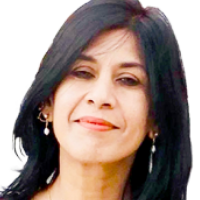Can the heroic act of the Paris ‘Spider-Man’ change the perception of migrants?
Mamoudou Gassama, the Malian undocumented migrant feted by France for his heroism, epitomises the many sides of the fraught European debate about refugees.
An able-bodied young man who told the mayor of Paris he dreamed “of building his life here (in France),” Gassama clearly falls into the category of an economic migrant.
As someone who left Mali for Europe by sneaky back routes — travelling via Libya through Italy into France — Gassama is part of a persistent European problem. His journey by boat across the Mediterranean suggests probable collusion with people smugglers. His 4-year stay in Italy was probably well under the official radar. French authorities may never have known Gassama entered their country in September had he not shot to national and international prominence with a single act of bravery.
From his late teens, Gassama, 22, has self-evidently been a consciously stateless person. He was someone who added to the weary statistics compiled every year by the European Border and Coast Guard Agency, also known as Frontex. In 2015 and 2016, a few years after Gassama must have made what Frontex calls an illegal crossing, more than 2.3 million such people were detected on the European Union’s external borders.
Unless he was able to dodge officialdom altogether, Gassama must have been one of the 2.2 million people said to be illegally present in the European Union in 2015 by Eurostat, the European bloc’s statistical office. Gassama makes flesh what a respected Oxbridge classicist once said of the ceaseless flow towards Europe: “We are sold the idea of a refugee as a tiny child sitting crying, as a way of raising money, but elderly ladies and kids largely can’t move. The demographic is mostly young men.” To European officials, Gassama was not a refugee but an unwanted migrant worker, most probably without discernible skills.
Then came Gassama’s selfless act of May 26. He scaled a Paris building to save a 4-year-old child hanging from a fourth-floor balcony. That death-defying climb, up and up, was captured on video and went viral on social media. Gassama acquired the moniker “Le Spider-Man,” saved the child, was heaped with praise, won a meeting with the French president, a job as a firefighter and accelerated French citizenship. Unless something goes grievously wrong with the script, Gassama can now expect to live his dream.
He is, as French President Emmanuel Macron pointed out, “the exception (not) the rule.” France, like other European countries, is engaged in an increasingly bitter argument about the state’s responsibilities and the rights of outsiders, migrants and refugees. Interior Minister Gerard Collomb has been pursuing a hard-line policy to evacuate makeshift migrant camps in Paris, while the city’s mayor, Anne Hidalgo, argues against it.
In a move to tighten immigration policy, the French National Assembly passed a tough law in April that shortens asylum application deadlines, doubles the time for which illegal migrants can be detained and introduces a 1-year prison sentence for entering France illegally. Unlike Donald Trump’s controversial family-sundering policy for migrants to the United States, the children of migrants to France are allowed to be kept in detention with their parents. Critics say that is hardly better than the United States because migrants are still treated by the French state as criminals.
In this context, what effect can a single heroic act by one migrant have on the agonised French debate? Perhaps nothing at all, beyond a day or two. Three years ago, another young Malian Muslim, Lassana Bathily, courageously hid customers in a cold-storage room during a terrorist attack on a kosher supermarket in eastern Paris. He received a French passport and a medal but the demonisation of migrants continued.
Now there is Gassama’s reflexive human response to an impending human tragedy. By scaling the Paris building with no thought to his own life, that Malian undocumented migrant showed France he was part of the same tribe, if from a different geographic place.
As Raphael Glucksmann, managing editor of a literary magazine, wrote after Gassama’s extraordinary feat: “I dream of a country where it wouldn’t be necessary to scale a building to save the life of a child, at the risk of one’s own life, to be treated like a human being when you are a migrant.”
One would hope it is a dream shared by many.
Rashmee Roshan Lall is a regular columnist for The Arab Weekly. She blogs at www.rashmee.com and is on Twitter @rashmeerl
This article was orginally published in The Arab Weekly.







